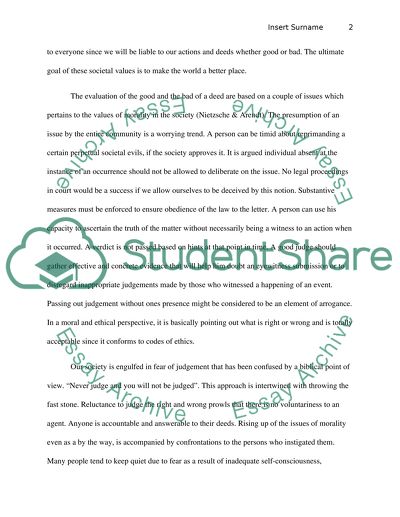Cite this document
(“Ethics and Morals Essay Example | Topics and Well Written Essays - 1500 words”, n.d.)
Ethics and Morals Essay Example | Topics and Well Written Essays - 1500 words. Retrieved from https://studentshare.org/philosophy/1464059-ethics-and-morals
Ethics and Morals Essay Example | Topics and Well Written Essays - 1500 words. Retrieved from https://studentshare.org/philosophy/1464059-ethics-and-morals
(Ethics and Morals Essay Example | Topics and Well Written Essays - 1500 Words)
Ethics and Morals Essay Example | Topics and Well Written Essays - 1500 Words. https://studentshare.org/philosophy/1464059-ethics-and-morals.
Ethics and Morals Essay Example | Topics and Well Written Essays - 1500 Words. https://studentshare.org/philosophy/1464059-ethics-and-morals.
“Ethics and Morals Essay Example | Topics and Well Written Essays - 1500 Words”, n.d. https://studentshare.org/philosophy/1464059-ethics-and-morals.


